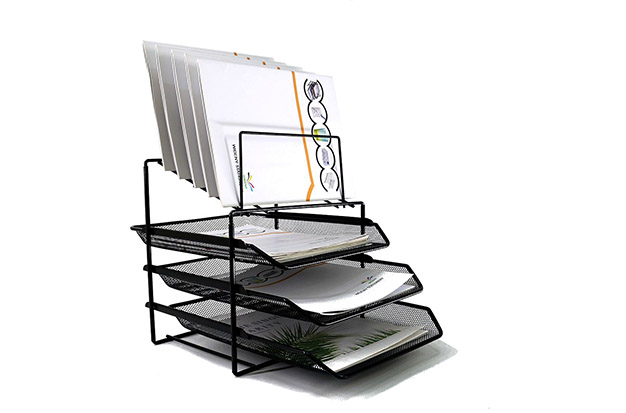
Office supplies are typically viewed as a cost. However, when it comes to office equipment, costs, and supplies, things can get complicated. Learn how to categorize them correctly.
Office supplies are bought for consumption, making them more of a business expense than a current asset, even though they unquestionably fall under the asset category, which is anything of value that you own.
There are, however, some exceptions to that rule since this is accounting-related. There may be an exception, in which case it would probably fall under the office expense or office equipment heading. We’ll go over each of these categories briefly, along with how to categorize these costs on your financial statements.
What Exactly Are Office Supplies?
Office supplies are one of the primary categories of items required to fully establish an office environment, along with technology and office furniture. They could be defined as the things used in, around, and with the office’s furniture and technology, whether it be a home office with one employee or a multinational corporation with a sizable workforce. Most office supplies, in contrast to technology and office furniture, are reasonably priced, but many are crucial to a company’s efficient operation. Of course, each office has unique requirements depending on the type of work done there. Nevertheless, some things are pretty commonplace.
Office Furniture
Office furniture selection is crucial. In addition to improving well-being, an ergonomic and comfortable work environment also increases productivity and attracts new hires.
Consider how the day will be structured for your staff. Stand-up desks, couches for communal spaces, tables and chairs of various sizes in conference rooms, dry-erase boards, multi-purpose filing cabinets, and decorative art are all necessary for a dynamic work environment.
When assessing office furniture and equipment, take into account the following three factors:
- Size – Make furniture and equipment purchases that are appropriate for your office space. Make the room appear spacious and cozy by arranging the furniture in a pleasing way.
- Aesthetics – The furnishings and design elements you choose should be consistent with the culture and working methods of your business. Select office décor that complements your brand and style.
- Durability – Spend more money if necessary to purchase durable tools and accessories. Furniture is an investment.
Whatever your budget, Amazon Business carries all of the office supplies you’ll need to outfit your workspace with a variety of lighting and furniture options.
- Office desks
- Conference room tables
- Office chairs
- Sofas
- Whiteboards
- Filing cabinets
- Lighting
- Art and decor
Technology
Prepare yourself with office supplies that promote cooperation and efficiency as well as IT add-ons like power strips, Wi-Fi routers, and backup storage hard drives that keep everything running smoothly.
It’s essential that you purchase electronics for your office from reputable brands because a lot of small businesses’ essential operations rely on technology. Here is a list of potential technological necessities for your company, along with some recommended brands.
- Office PCs
- Office laptops (See featured laptops from ASUS, Acer, Dell, Lenovo, and HP)
- Office Printers (Explore best business printers)
- Small business software for business productivity
- Networking tools (Explore routers and other internet equipment)
- Projectors (Explore best business projectors)
- IT accessories (power strips, surge protectors, keyboards, mice)
- Backup and storage hard drives
- Office phones
Office Essentials
All of the consumable supplies you use every day are considered office essentials. Office essentials like paper, notebooks, toner, folders, mailing supplies, writing instruments, and anything else you’ll need to complete tasks and maintain organization come to mind.
You can find inexpensive office supplies with 4+ Star Ratings in the Business Plus section of Amazon Business, where many of them have prices that are only available to customers with a free Amazon Business account.
Here is a list of office supplies you should always have on hand, some of which you might not have considered.
- Paper in various paper sizes
- Pens
- Dry erase markers and highlighters
- Printer ink and toner
- Staplers, staples, paper clips, and push pins
- Shipping and packaging supplies like envelopes and tape
- Organizers
- Paper shredders
- Office stationary
- Business cards
Breakroom
Your staff can stay happy and engaged if the breakroom is well-stocked. However, maintaining a supply of wholesome snacks and beverages, paper goods, and cleaning supplies in your breakroom can be time-consuming given how quickly they run out.
By combining your breakroom purchases on Amazon Business, you can avoid going to the store. On eligible items, you can find more than 2 million bathroom products from a variety of top brands at business-only prices.
Here is a list of the supplies you’ll need for your breakroom.
- Snack foods
- Coffee and tea
- Commercial coffee maker and supplies
- Beverages
- Office cleaning supplies
- Paper products and disposables
- First aid
Remember that every company is unique as you’re compiling a list of the essential office supplies you’ll require for your new venture. The kinds of products you’ll need for your office and how frequently you’ll need to replace or restock items will differ greatly depending on your industry. The most complete office supply retailer is Amazon Business, which also offers free tools to make shopping simpler.

Do Office Supplies Count As An Investment Or A Cost?
It appears to be an easy task to run an office. When attempting to properly categorize routine office expenses, however, things can become murky. Let’s take Sara as an example. She might purchase a laptop computer for one of her employees along with staplers, staples, copier paper, and staplers. The laptop would be regarded as an asset while the staplers, staples, and paper would need to be recorded as an expense for office supplies.
Adding office expenses complicates the procedure even further. What distinguishes an office expense from office supplies? What qualifies as office equipment or supplies in this context? Let’s examine all three categories of business expenses and how to properly classify them.
- Office supplies: To enable you and your staff to perform their jobs, you and they both need to make a few small purchases of office supplies. The cost of office supplies includes things like staples, paper, ink, pens and pencils, paper clips, binders, file folders, and markers. These products are all entirely consumable, which means that they are bought to be used. They are assets because they have value, but they are not recorded as assets; rather, they are recorded as expenses. It’s crucial to keep inventory expenses apart from costs for office supplies. Since inventory is never considered to be consumable, it is always viewed as an asset.
- Office expenses: Office costs, such as office supplies, are typically recorded as an expense rather than an asset. Janitorial services, software subscriptions, office maintenance, and even website upkeep are some examples of office expenses that are frequently intangible.
- Office equipment: Office supplies and expenses are typically expensed immediately, but office equipment is typically recorded as an asset and expensed over a prolonged period of time. Office furnishings and fixtures, such as desks and chairs, as well as desktop and laptop computers, other electronic devices, printers, copiers, and other office equipment are all considered to be part of the category of office equipment. Although the IRS changed its policy in 2016, business owners can now immediately deduct the full cost of any asset they purchase for their company that costs less than $2,500. You can still classify these costs as long-term assets if you prefer. While many companies use a dollar amount as a threshold for classifying these purchases as equipment, this change was made by the IRS.
It is possible to expense office supplies if you buy them in bulk and classify them as an asset. It is not necessary to classify supplies as an asset because, in the majority of cases, offices purchase enough to last them for a few weeks or a month.
Four Best Practices For Correctly Classifying Your Office Supplies
The following best practices can be used if you’re still unsure of how to categorize your office supplies.
Decide If It’s Consumable
Consumable items include paper, pens, pencils, and similar supplies. They all need to be expensed at the time of purchase, unless you buy enough of them to last a year.
Determine How Quickly It Will Be Used
You can consider how quickly you will consume an item before deciding how to classify it in relation to the question of whether it is consumable. For instance, if you hire a cleaning service and are paid every month, that should be reported as an office expense. However, if you hire cleaning services and prepay for them a year in advance, you must record this as a prepaid expense and deduct it from your income on a monthly basis.
Consider The Cost
According to IRS regulations, if a piece of machinery or equipment costs less than $2,500, you may expense the entire item. To expense that item over a longer period of time is still an option, though. The internal cut-off point that many small businesses establish can be useful when deciding whether or not to immediately expense an item.
Materiality
The thing you bought needs to be recorded as an asset if it has a big impact on your financial statements. A business with fewer assets, for instance, will have a lower threshold for purchases than one with more assets.
Conclusion
Business owners will stay organized and avoid missing out on significant deductions by comprehending the fundamentals of business deduction categories, such as the distinction between office expenses and supplies. Deductions are complicated, though, so it’s always a good idea to seek advice from a tax expert.
